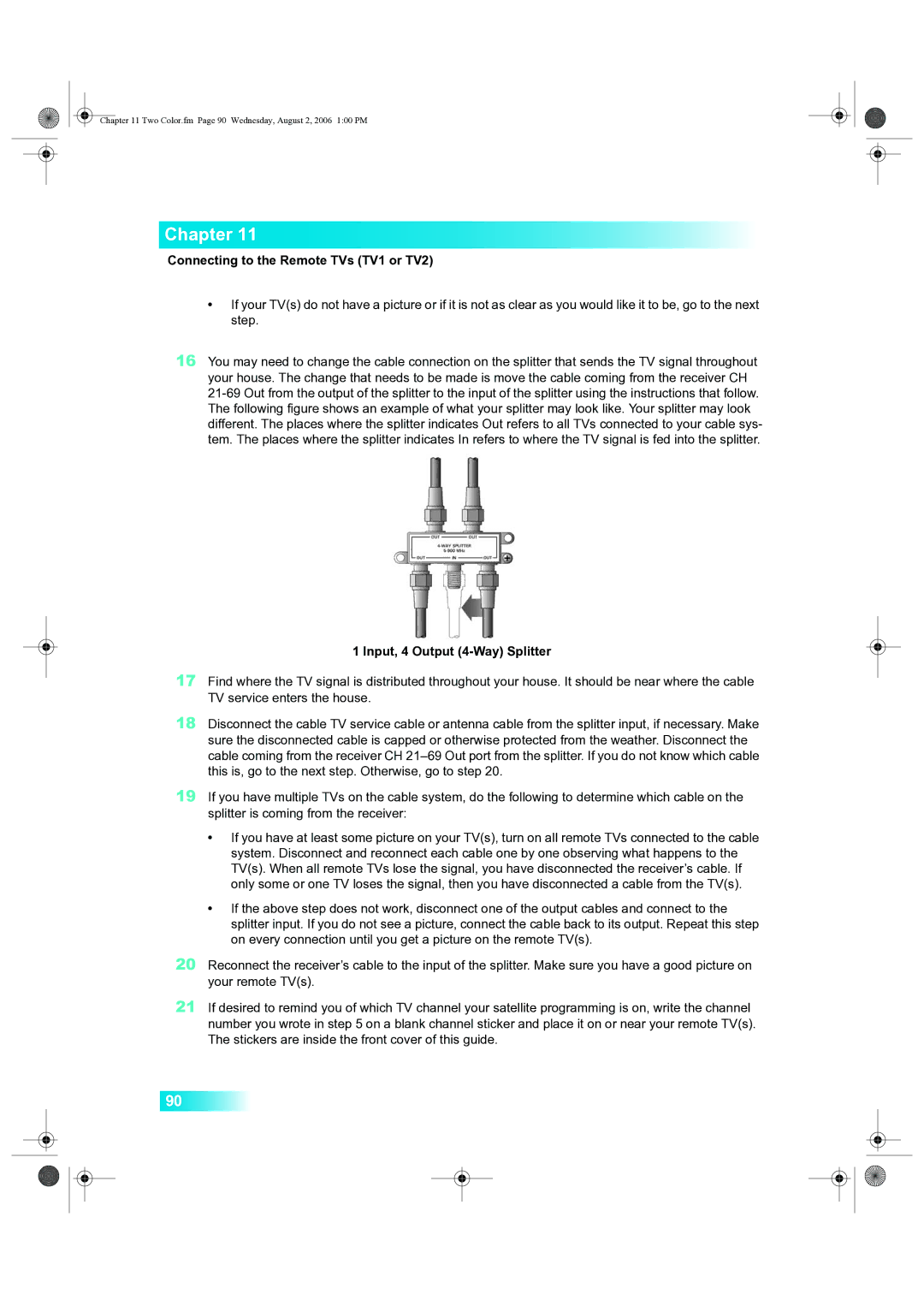
Chapter 11 Two Color.fm Page 90 Wednesday, August 2, 2006 1:00 PM
Chapter 11
Connecting to the Remote TVs (TV1 or TV2)
•If your TV(s) do not have a picture or if it is not as clear as you would like it to be, go to the next step.
16You may need to change the cable connection on the splitter that sends the TV signal throughout your house. The change that needs to be made is move the cable coming from the receiver CH
1 Input, 4 Output (4-Way) Splitter
17Find where the TV signal is distributed throughout your house. It should be near where the cable TV service enters the house.
18Disconnect the cable TV service cable or antenna cable from the splitter input, if necessary. Make sure the disconnected cable is capped or otherwise protected from the weather. Disconnect the cable coming from the receiver CH
19If you have multiple TVs on the cable system, do the following to determine which cable on the splitter is coming from the receiver:
•If you have at least some picture on your TV(s), turn on all remote TVs connected to the cable system. Disconnect and reconnect each cable one by one observing what happens to the TV(s). When all remote TVs lose the signal, you have disconnected the receiver’s cable. If only some or one TV loses the signal, then you have disconnected a cable from the TV(s).
•If the above step does not work, disconnect one of the output cables and connect to the splitter input. If you do not see a picture, connect the cable back to its output. Repeat this step on every connection until you get a picture on the remote TV(s).
20Reconnect the receiver’s cable to the input of the splitter. Make sure you have a good picture on your remote TV(s).
21If desired to remind you of which TV channel your satellite programming is on, write the channel number you wrote in step 5 on a blank channel sticker and place it on or near your remote TV(s). The stickers are inside the front cover of this guide.
90
